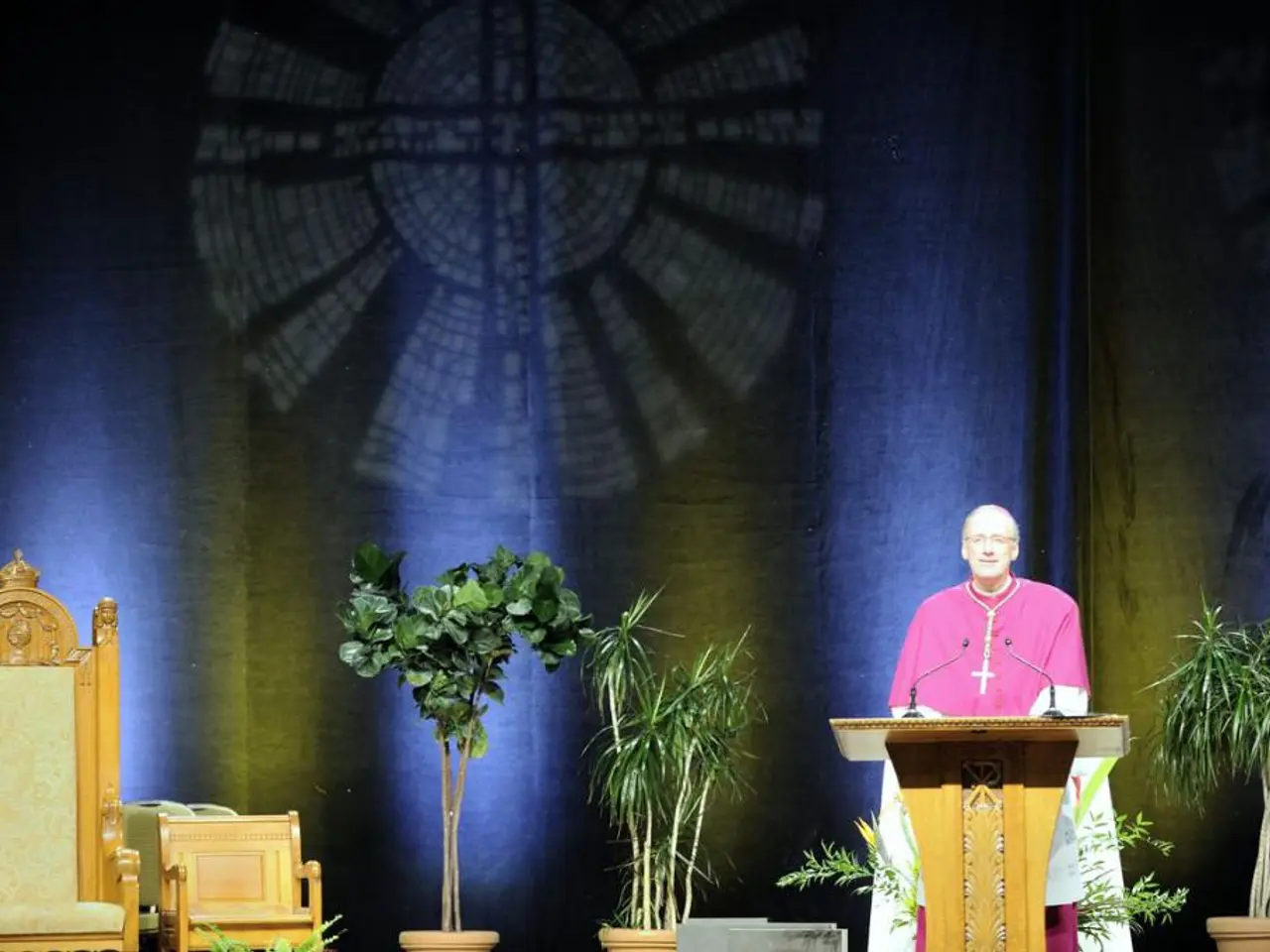Previous Labour Minister Müntefering labels the Reich-Vorstoß as "complete absurdity"
=============
The debate on extending working hours and adjusting the pension system in Germany has gained momentum, with Economic Affairs Minister Katherina Reiche advocating for "more and longer work" to address fiscal pressures caused by demographic changes and increasing life expectancy.
Reiche's proposal, based on the premise that people are living longer and entering the workforce later, aims to increase the working period to sustain pensions, as the current retirement age system is straining pension finances[1][3]. She argues that Germans must work longer and more to ensure the financial sustainability of the pension system, as people currently work for about two-thirds of their adult life but retire for the remaining third[1].
However, Franz Müntefering, a prominent SPD figure and former federal minister of labor, has expressed opposition to Reiche's proposal, labelling her statements "blanket nonsense"[2]. Müntefering notes that people are different, have different talents and abilities, and are healthy in different ways, suggesting a need for more individual rules for working hours and transitions into retirement[3]. He emphasizes the importance of protecting work-life balance and fair pension schemes[3].
Critics of Reiche's proposal focus on social and practical concerns, such as the high share of part-time work in Germany, which lowers the average working hours, suggesting that simply pushing for longer hours ignores structural employment realities[3]. Opponents also warn against the potential indirect increase in retirement age, advocating for pension reform that integrates civil servants and lawmakers into the statutory pension system to share the burden more equally[3].
Concerns about the impact on workers, especially those in physically demanding jobs, where extended working years may not be feasible or fair, have also been raised[4]. Critics call for reforms to support workers with family duties, such as improved child and elder care, allowing them to remain longer in the workforce without solely increasing hours[4].
The debate between economic sustainability goals and social fairness and labor conditions is heating up, with Reiche pushing for longer hours tied closely to pension viability, and Müntefering and others urging caution and broader social reforms to protect workers.
References:
[1] ntv.de
[2] mpa.de
[3] Süddeutsche Zeitung
[4] Tagesspiegel
- The discussion on community policy for pension sustainability in Germany has expanded, with vocational training being suggested as a potential solution to address the challenges posed by demographic changes and increasing life expectancy.
- As the political landscape considers the extension of working hours and adjustment of the pension system, policy-makers must prioritize initiatives that ensure fairness in labor conditions, such as vocational training programs and work-life balance protections, alongside policies focused on fiscal sustainability.







